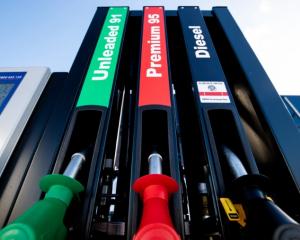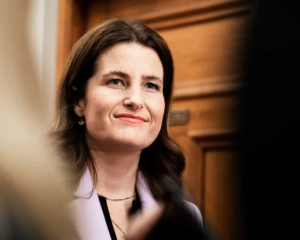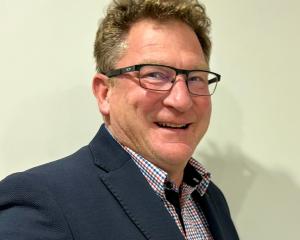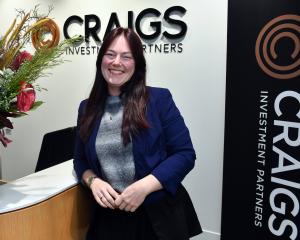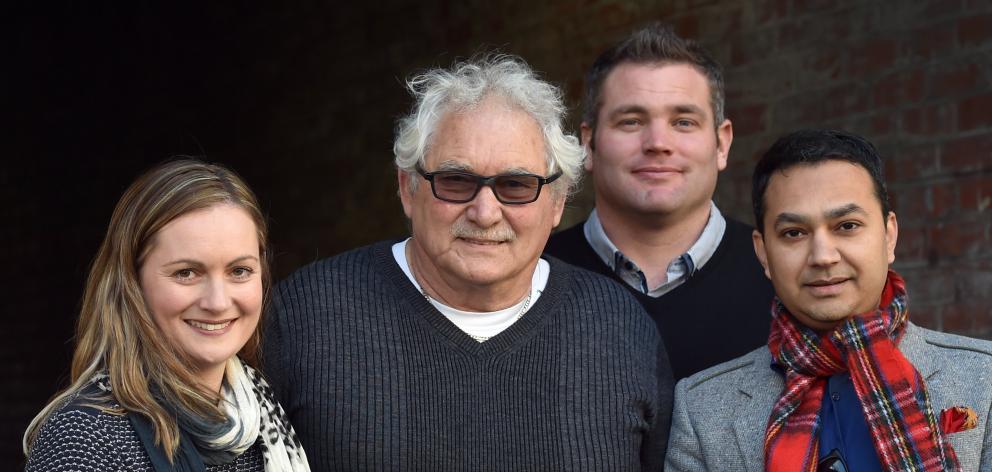
When Sid Vinchurkar graduated from University of Otago with an MBA, he left with much more than a piece of paper.
It provided him with not only a business partner and an opportunity to become involved in an exciting new startup venture, but also a city for him and his family to call home.
Mr Vinchurkar and Jeremy Hall were in the the same class at the Otago Business School completing the MBA programme.
Not only did they study together, they also won the best business case together and graduated on the same day in 2017.
During that year, they had talked about starting a business when they finished their MBA studies. That day finally came and they decided to build project management firm O'Callaghan together.
The name O'Callaghan was a nod to the entrepreneurial family that Mr Hall married into, which dated back to the Wakatipu goldfields.
Generations of the family have shown entrepreneurial spirit since John O'Callaghan and William Fox first discovered gold at Arrowtown in 1862.
John O'Callaghan's great-grandson Beven and his wife Robyn have most latterly been at the helm of the family business, which daughter Pearl O'Callaghan-Hall and her husband Jeremy Hall were also part of.
That included ownership of four Mobil service stations in Dunedin and one in Christchurch. O'Callaghan was also a true family venture, with Mr Hall as managing partner, Mrs O'Callaghan-Hall the financial controller and her parents in adviser and mentor roles.
Beven O'Callaghan was born in Dunedin and then went back to Arrowtown where his parents owned the Royal Oak Hotel.
His father died when he was 15. He finished school in Dunedin and completed a diesel mechanic apprenticeship.
That was followed by a stint overseas, including Iraq, before returning home, getting married and taking his wife to South Africa in 1998.
The family were there for 11 years and owned several businesses, including a resort, and drilling for water.
Dunedin-born Mr Hall started his career as an engineer and worked at various firms around the city, including Hillside.
He had a stint as a prison officer, but found that it was not for him, and returned to engineering.
His father-in-law told him he had potential, so he went back to polytechnic to study, while Mr O'Callaghan gave him an opportunity to work in the family business. That was followed by his MBA.
O'Callaghan was launched late last year, working with construction and heavy engineering companies, helping them to manage their often multimillion-dollar projects.
That included construction oversight, scheduling, cost control, project co-ordination, resource planning and monitoring, risk analysis and response planning, stakeholder management and progress reporting.
Mr Hall said it was not normal to have achieved the scale of projects it had in such a short time-frame, but he attributed its early success to delivering what clients wanted.
It had all been from word-of-mouth and there were a lot of potential opportunities out there. While Mr Hall had functional experience, Mr Vinchurkar - who is project manager - had a background which was across digital media, mobile, marketing and technology.
That included setting up teams of two global mobile gaming companies, incorporating a multinational, an acquisition and a global merger. He had spent short stints in London, Helsinki, Stockholm and Dubai.
Prior to moving to New Zealand and while still living in India, he owned an advertising company that was acquired by an American firm in 2012.
In 2015, he was contemplating "what next" and decided to return to study. With degrees in commerce and arts, and finance certification, he decided an MBA was his only option.
Originally, New Zealand, a country he had never previously visited, did not feature on his list of options. He landed in Dunedin the night before his first lecture.
Being an entrepreneur, Mr Vinchurkar had plans to get into something as soon as he finished his MBA.
By the time he finished, it was very clear that he, his wife and their 6-year-old daughter wanted to stay in Dunedin.
They had forged connections in the city and met some really good people, including Mr Hall. He was keen to be connected with the community and make an impact.
While Mr Vinchurkar missed family back in India, technology made it easy to keep in touch and he considered himself a "global citizen".
One of his objectives from his MBA was to find people that he could partner with in the future. He and Mr Hall used to write down ideas every week - such "crazy" things as a luxury water business.
"We were always talking to each other . . . about what we would be doing and how we would approach things," he said.
O'Callaghan now worked with clients primarily in Dunedin but with multimillion-dollar projects around New Zealand, including in Auckland. Growth was expected to be organic, rather than exponential, he said.
Mr Vinchurkar was enjoying the role. While he had done project managing in the past for multinationals, that was for IT-related projects.
But the good thing was whether it was IT or construction, the underlying principles were still the same.
Being based in Dunedin was no barrier for O'Callaghan, even though it had projects in Auckland. That was because of the cloud, technology and "all the tools we use".
How the startup scene was approached in Finland was something that Mr Vinchurkar believed could be replicated in Dunedin.
Finland went through a rough time after Nokia sold its mobile devices division to Microsoft, which people were very upset about. Nokia had been an integral part of Finnish society.
But it gave rise to a lot of entrepreneurs in Finland that came together and created multimillion-dollar companies.
Mobile game development company Supercell, the maker of the Clash of Clans mobile game, started in a community smaller than Dunedin and was now a $12 billion company, he said.
It started with "changing perception" around town and then getting into dialogue. It was about talking positively and encouraging companies to the city.
Some of the best talent to land in New Zealand came through Dunedin but, most unfortunately, a lot of that talent left the city.
There was also the accessibility of people and the need not to spend hours travelling around the city.
He believed there needed to be "PR for the people of Dunedin" - telling more about successful companies such as gaming companies RocketWertz and Runaway Play and their journeys.
Mr Vinchurkar sits on the panel of CODE, the Centre of Digital Excellence, an initiative which aimed to build on the city's digital strengths.
He was also involved with the recent Dunedin TechWeek, helping give an insight into the $US139 billion global gaming industry and the growing role of New Zealand as a game development hub.



